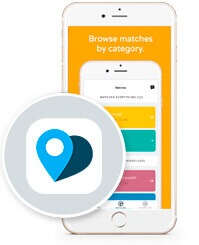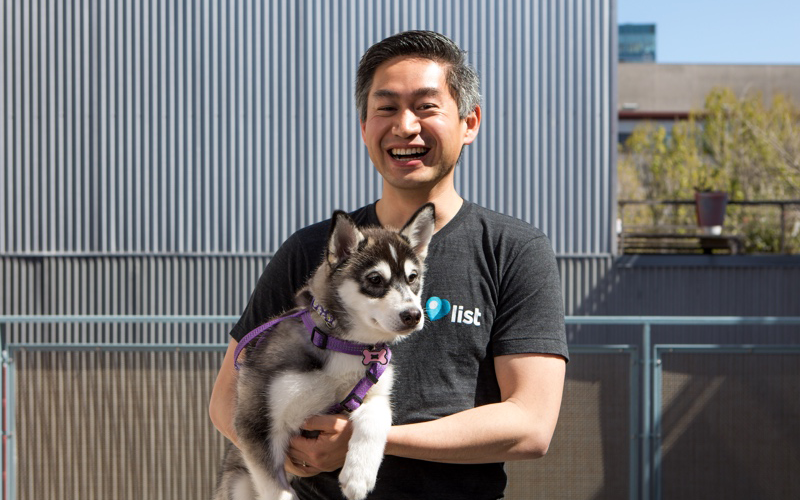Q&A with Chris
This Q&A reflects Chris's time as Senior Performance Marketing Manager at Apartment List. Currently, Chris is Head of Growth at Marker Learning.
Chris Chee, based in San Francisco, has been in digital marketing for the last 12 years. He worked at agencies and large tech companies early in his career before moving to high-growth startups for the past 5 years. He’s been a 1 person team and worked all the way up to 85 person, global digital marketing/growth teams. Chris has managed every aspect of digital marketing: search, social, apps, analytics, automation, including also spending 100s of millions of ad dollars.
Read Chris's latest article: "How Apartment List Increased Customer LTV by Streamlining the User Flow"
In your own words, tell us about the app that you manage?
Apartment List is an app that helps renters find a place to call home. The best part about Apartment List is that it helps people save time. You tell us exactly what you want in terms of your price range, your commute hours, or time. When you commute, is it public transportation or by car? And then you tell us the type of apartment and we do all the heavy lifting for you. We match the right apartments from our site to exactly what you’re looking for.
Apartment List has 4 million property listings located on it's platform across the US and is working hard to add more properties in every metro area.
How did you get started in mobile marketing?
We knew we had to move from web to app, so I jumped in. I have a digital marketing background so that helped out a lot. The opportunity was just there as we needed to acquire more users. I would say my first major step into the mobile app world is really just in the last 8-10 months.
As a whole, I’ve had to figure out the mobile app world and strategies really really quick. It’s been really fascinating so far and the mobile app world is just so different. It’s very new but it’s also just so different than traditional marketing. It’s been a great learning experience so far.
What do you like most about mobile marketing?
It’s always evolving. Everything is always new—new technology partners, new ways to think about attribution, fraud, etc. It’s always evolving and you have to stay ahead of the industry. That’s what makes mobile acquisition so interesting, it’s so fascinating. The data that’s being produced is also a little bit different than traditional digital marketing, so I think this is where it’s been a really fun experience.
What does it take to succeed in mobile marketing?
There are some great days and some frustrating days but it's really about working closely with internal and external partners to deliver an amazing user experience from ad impression all the way down to the perfect app experience. I really believe mobile marketing is just meeting an ROI or CPI target but successful mobile marketing is also exceeding all expectations of a user, building customer loyalty and having an amazing Net Promoter Score (NPS).
What does a quality mobile user look like to you?
Coming from the non-gaming side, I'd say it's someone that not only uses the app frequently but also engages with positive downstream events that will eventually lead to a revenue generating event.
What strategies work best to convert installs into engaged users?
For us, in app notifications are really good for converting an install to an engaged user. In our app and as part of our product flow, even if you don’t tell us exactly what you want, we always match you to whatever is available at that time.
The great thing about in app notifications is there might be something that’s even a little bit better that matches with exactly what you want. This is where in app notifications become important. A user might not see that there’s an apartment that we’re tracking for $50-$100 dollars off the price range they put in.
So when users see something like that it makes them think, “maybe I should reach out to that apartment complex” or “maybe I should double check what’s available out there.” That’s the great thing about in app notifications—they let users know they should act now, there are really good deals out there.
In the past year, what is one tip you can share which made the biggest performance difference with UA or re-engagement of your app?
On the re-engagement side, it was working with our product and development teams to figure out a solution so that users don't have to login again when they switch from the mobile web experience into the app. It was a barrier in our user flow and now the experience is seamless.
How do you stay ahead of changes in technology?
I read the general industry publications. I have very specific questions I’m trying to answer, I’ll start reading and searching for certain blogs. People are very knowledgeable in the industry who publish blog posts, so I’ll research them.
After reading blogs, I’ll just dig into whatever else I need to myself. Then I think the next big thing is what are other companies actually trying to solve? What are the newest startups? Why do they think their great idea was worth a certain valuation that is worth starting a new company? And oftentimes when you start looking at that you can put together new pieces of technology that you should consider or maybe general trends of where technology is headed.
What do you see as the next big thing in mobile app marketing?
So I think there’s really two big things in mobile app marketing. One is fraud detection. I’m not going to touch on that because everyone’s blowing it up.
The other thing is how we can align users to what’s really behind an app install. So when they look at an ad, they can see an actual preview of what’s going on. Or maybe they can start playing around and using a very light version of the app through the ad.
This is where I think it would be helpful because when someone actually installs an app, they’d know it is exactly right for them. There’s really no surprises. The worst thing that happens is to have a user install the app, find out it’s not for them, and just uninstall it. As a marketer, I’ve wasted my money, so this is where I think it would be pretty helpful.
What advice can you offer to help marketers combat mobile ad fraud?
Measure and track the entire app user flow. Check the data of your app install sources early and often. Also have a really strong understanding of your user funnel flow beyond the install so if users aren't generating positive events you can catch that early. If adding a new traffic source doesn't generate incremental installs or conversion events then the alarms should be going off.























